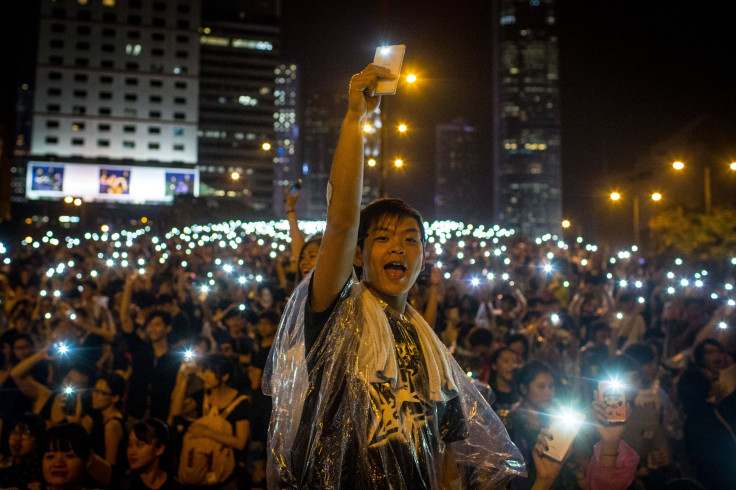Hong Kong Officials Deny Teen Prison Program Is Aiming To Curb Youth Protests

Hong Kong officials have denied that a new program that sees teenagers subjected to mock trials and taken around prison facilities in the Chinese Special Administrative Region is a bid to curb political protests, of the kind which paralyzed parts of the Asian financial hub for months last year.
The scheme, dubbed “Reflective Path,” was launched Wednesday by the city's correctional services department, and sees high school students subjected to simulated criminal trials, and then taken to prison facilities.
“We hope through this program, that we can deliver a message, that is [about] that living a law-abiding life... We hope after they experience these programs, they can really feel how hard prison life [is], and then when they encounter some temptation, and they have to make [a] choice that they make the right choice,” Choi Nam-kin, a spokesman for the Hong Kong Correctional Services department told local broadcaster RTHK.
Hong Kong was shaken by mass protests late last year, that saw central areas of the territory occupied by demonstrators for months. Protesters were calling for the territory's chief executive, the head of its semiautonomous government, to be elected by universal suffrage, but Beijing's central government insisted that any candidates who wish to stand for the post at the next election in 2017 would need to be politically vetted by a committee widely viewed as stacked with Communist Party loyalists.
Many of the leaders of 2014's Occupy movement were teenage university students, some of whom face criminal charges in the territory as a result of their involvement in the protests. Hong Kong's government held talks with demonstrators early during the protests, but quickly abandoned a policy of engaging with demonstrators, preferring to wait them out, a strategy which eventually saw protests fizzle out.
Leung Cheong-wai, 14, a student who participated in the program, was asked if he would think twice before joining protests like last year's pro-democracy demonstrations, he said: "Yes."
He added: "Sometimes protests can turn into riots or something unexpected. Breaking the law at such a young age worries me. I would now ask my parents for advice if I were to go," the South China Morning Post reported. One Hong Kong educational expert also told the paper that the program was an attempt to “bring youngsters into line.”
© Copyright IBTimes 2025. All rights reserved.






















